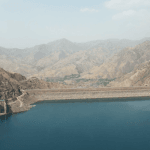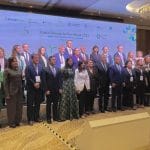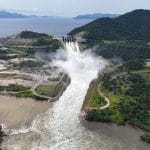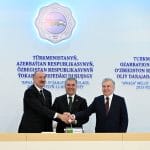At the OPEC+ meeting, which came against a backdrop with Brent trading just under $80 per barrel, oil ministers decided on October 4 to support the existing deal, which will see a total 400,000 barrels per day added each month, satisfied with the oil market performance.
“OPEC+ is very satisfied with the way the oil market has performed this year in that the price has risen steadily while absorbing the volume increases from the group,” Chris Weafer, co-founder of Macro-Advisory in Moscow, told New Europe on October 7. “But Ministers know very well that this is a balancing act, especially against a still far from safe global economic backdrop,” he added.
Weafer noted that the Organization of Petroleum Exporting Countries and its oil-producing allies led by Russia, a group known as OPEC+, is adding the extra oil carefully and while watching closely what is happening in the world’s major economies against the still dangerous threat of a further Covid-19 disruption.
There is also reluctance to add more oil than this as that risks bringing back more US Shale. OPEC+ is fearful that a high oil price may persuade US shale producers to increase spending and start to recover more of the near 2 million barrels the sector cut last year, Weafer explained, adding that none of the major OPEC+ countries want to see US oil return in bigger volumes.
At the same time, most of the producers need at least $80 oil to balance their budgets and this is a price target which has been mentioned on several occasions. “My sense is that the Group is now content to see the price settle at this level through the winter rather than continue to climb. That would risk more US competition and have a negative global economic impact. If the price does climb higher, to the mid $80s or better, then we should see more production agreed at the next meeting,” Weafer said.
“It is a lot like a version of the children’s game Kerplunk; only in the oil version OPEC+ holds its breath every month it adds extra volume and hopes it does not trigger a price collapse,” he said.
According to Weafer, Russia is in a very comfortable position this year and looking into next year. It will balance its budget at approximately $60 per barrel and has reported a budget surplus for the past six straight months. “That is even with the increased pensions and social and infrastructure spending the government announced in the summer. Also, with the spike in gas prices this year, it really is a boom time for the Russian budget. The country’s balance sheet has been so good. (Russian) President (Vladimir) Putin must be well pleased he agreed to participate in OPEC+,” Weafer said.
However, pressures to increase production are growing as world energy markets are facing shortages. Already a hike in natural gas prices, which is an important fuel for generating electric power, threatens to affect oil prices.








